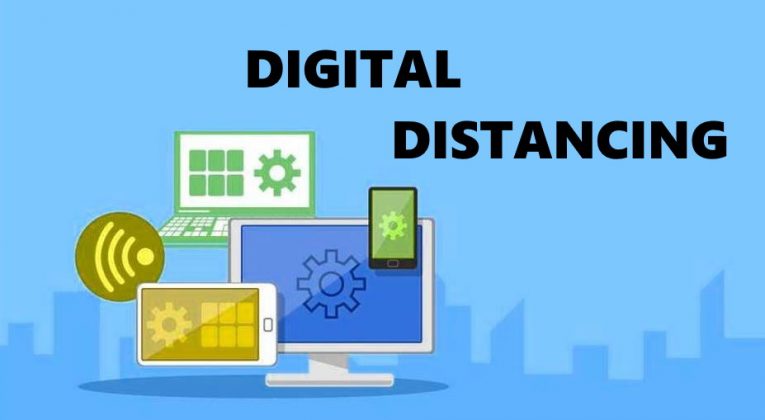Digital Distancing and Its Impact on Your Virtual Security

With the Covid-19 pandemic slowing down a little but still very much relevant and affecting all aspects of daily life, the term 'social distancing' is being thrown around a lot. The responsibility of doing our best to stay safe and keep others safe can easily be extended to the digital world as well.
When security experts speak of digital distancing, they usually refer to using the best practices and taking every precaution in an effort to minimize the risk of cyberattacks on any connected devices, whether those are in your home or office.
Over the course of the last few years, the general public has become increasingly aware of the importance of cyber security, not just in the office space but also at home. News of devastating cyberattacks and cyber ransoms in the millions of dollars is making the rounds on an almost weekly basis. With the massive shift towards working from home, people are becoming more aware of the need for robust security for their home network and for following good cyber safety practices.
Chances are your home computer is now interacting more and more with organizations and businesses that you could be exposing to potential risk if your own system is infected, mirroring the real-world situation with the Covid-19 pandemic. In this sense, digital distancing is also similar to distancing in real life. The main difference is, the focus is on minimizing the potential risk for your own home network and computer when it comes to cyberattacks and malware that can potentially use your system as a springboard to spread further.
Table of Contents
What Can You Do to Practice Digital Distancing?
There are a number of measures and steps that can be taken to limit exposure to malware and bad actors and make your home network as safe as possible.
Use an anti-malware suite
Current-day anti-malware suites that are as fully-featured as possible and include not just antivirus but also anti-ransomware, real-time detection and heuristics capabilities, are a necessity for any device that is connected to the Internet.
Use strong, complex passwords
Even though some services try to enforce good practices when it comes to user passwords, there are still a lot of people who use their cat's name or their childhood favorite cereal and their year of birth as their password. Single-word passwords or passwords that consist of few characters in general, even if there are numbers in the mix, are very easy to brute-force these days, with algorithms able to generate and try thousands of passwords every second.
The best approach to generating a strong password is to have significant character length, with most services recommending 11 characters at the very least, and combine uppercase and lowercase letters, numbers and special symbols in the same password, to make simple brute-forcing nearly impossible.
Consider using a VPN service
Using a virtual private networking (VPN) service is one of the simplest and most effective things you can do when it comes to practicing digital distancing. VPN masks both your incoming and outgoing traffic and hides your real location and system IP address. This means that bad actors trying to trace your actions and connections online will have a much harder time. The VPN services offered online can be free or subscription-based, with the latter coming with a few extra perks and some added protection.
Exercise caution and use your common sense
No amount of security apps can replace your own common sense and your personal judgment when you look at an email or a web page. Make a habit of always hovering over all links and checking the URL they refer to in your browser's status bar. Keep away from unsolicited emails, especially ones that attempt to scare you or promise you rewards you never earned or entered a draw for.
Digital security is evolving along with the Covid-19 situation all over the world. Keeping up to date and ahead of the digital threats can be a challenge, but it is a responsibility that everyone must face and take seriously.








